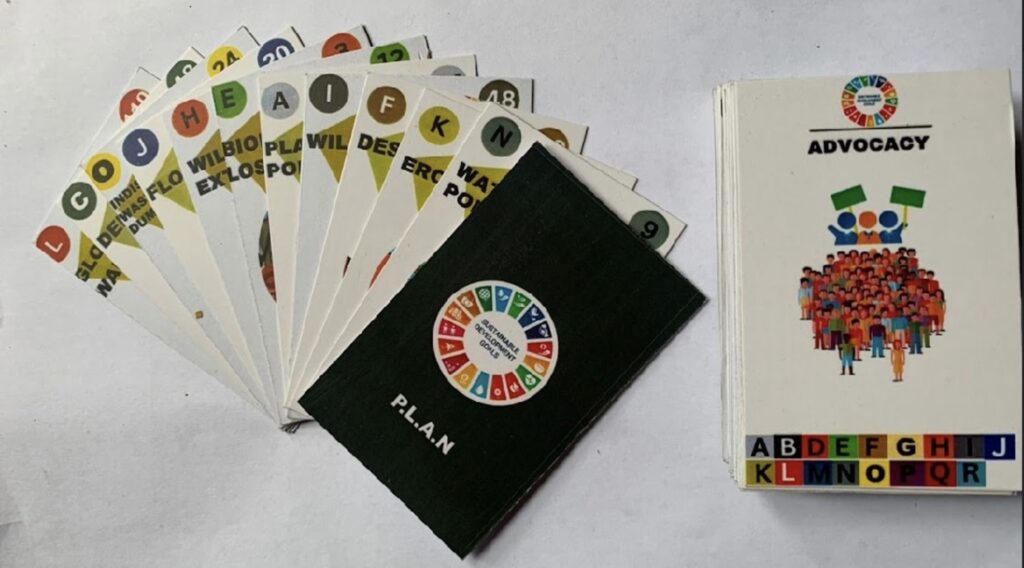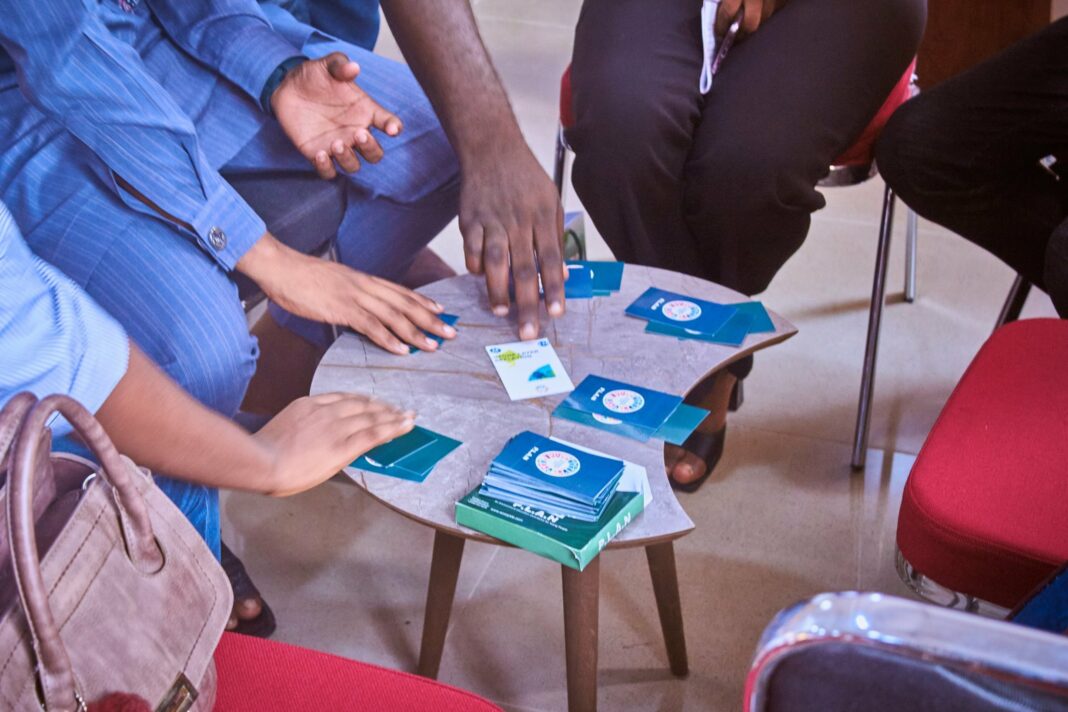In the absence of government action, two Nigerians created a game to encourage others to tackle environmental issues.
Studies have shown that climate change has particularly negative consequences for low-income people living in rural areas. Although there are many such communities in Nigeria, little progress has been made to address climate issues. Despite having pledged to meet the United Nations’ seventeen sustainable development goals, put forward in 2015 with a 2030 proposed completion date, Nigeria has thus far made little progress toward achieving them.
But one group has a strategy for engaging community members that is both simple and fun. Ecocykle, a community-centered organization founded by Aliyu Umar Sadiq and Lauritta Boniface to address climate-related issues in Nigeria (especially in overlooked and marginalized rural communities), has developed a card game that they hope will educate and motivate players to take action toward addressing environmental problems.
The game, called Play Learn and Act Now (PLAN), is similar to Whot!, the most popular card game in Nigeria. “The Play, Learn and Act Now game aims to bridge the environmental education gap and inspire climate action amongst young people,” Lauritta Boniface explains. “The game, featuring problem and solution cards, enriches players' comprehension of environmental issues and the array of sustainable solutions at their disposal to tackle these challenges.” The organization partnered with the Federal Ministry of Environment and other NGOs to launch Play Learn and Act Now in October.

The PLAN game has two sets of cards. One set features illustrations depicting environmental issues such as deforestation and flooding; the other set offers solutions to environmental problems. The game starts with the first player putting down a “problem card”, then placing a “solution card” that addresses the problem on top. If a player plays a problem card that reads, “Indiscriminate Waste Dumping,” for instance, they might follow up with a solution card that reads, “Waste Recycling.” Other players repeat the process. A player with two identical problem cards can play both cards at the same time, and if a player plays more than one solution card, other players must pick an extra card from the deck. The winner is the first player to play their final problem card. Remaining players add up the numbers on the problem cards still in their hand, and the player with the highest number is out of the game.
There are challenges to getting the game widely adopted, such as the poor reading culture in Nigeria and a sixty-nine percent literacy rate. But Ecocycle took that into account, says Boniface. “[The game] is well designed with illustrations, color codes, and an alphabetical identification of each solution,” she says — all attempts to make the game easy and accessible. The organization hopes to get the game into more than 100 schools over the next year, distributing a total of 500 packs of cards that have been translated into various Nigerian languages and French. By helping educate a generation of young people on climate issues and how to address them, Ecocykle sets up the environment to be the real winner.


